The starter is one of the essential parts of your car, and you simply won’t want it to go bad. But what if your starter does go south? In such a case, how do you know if your starter is dragging and has gone bad?
Well, if your engine fails to start or even you hear grinding noises, this can be a clear indication of a bad starter. Moreover, dead battery and smoke can also be strong symptoms of your starter being dragged.
Want to know more about the symptoms of a bad starter? If yes, then binge on till the very end of this blog.
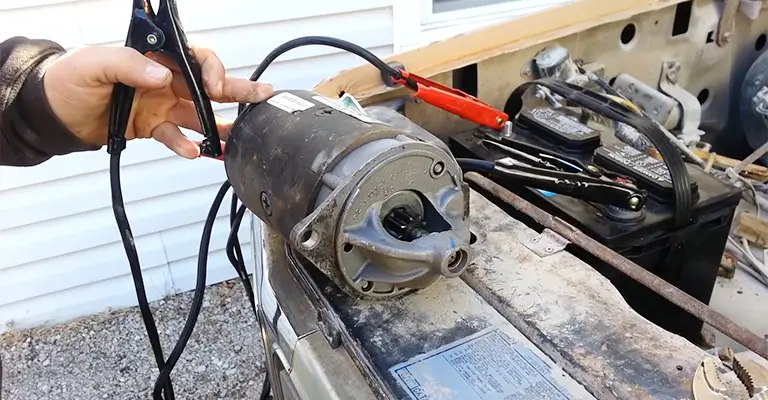
How Does a Starter Work in Your Car?
To oversimplify and avoid a lot of complicated engineering jargon, a starter is simply a device that converts electrical power into mechanical power in your car.
The starter device gets its electricity from the battery and then uses that power to crank or rotate the combustion engine inside the car. After that, the engine can then power itself and help the car to move about.
Symptoms of a Dysfunctional Starter
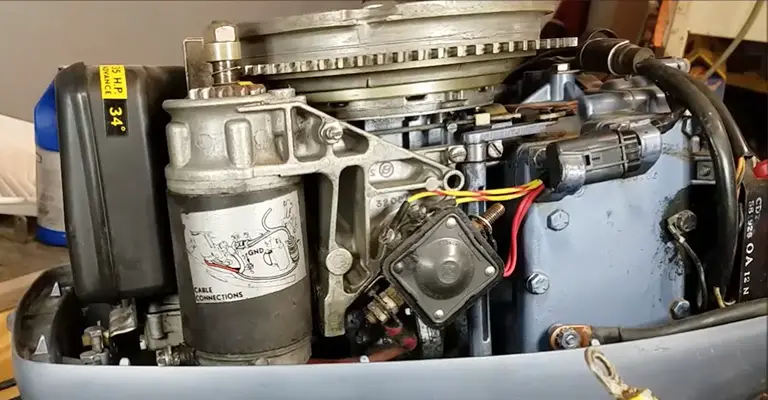
There are many reasons why the starter may stop functioning or start dragging. But there are also some easy-to-identify symptoms.
If you suspect that your starter has gone bad, check to see if any of the descriptions below matches your case:
- Engine Fails to Start
- Grinding Noises
- Dead Battery
- Smoke
- Starter Stays on Too Long
- Starter is Soaked in Oil
The Engine Fails to Start
The first one is the most obvious one. Your starter’s job is to start the engine. If the engine doesn’t start, it’s best to check if the issue is with the starter first.
This can happen due to any electrical or mechanical part not working. Or it could be the solenoid that connects the battery and the main starter motor. Get all your individual parts of the starter checked to identify where the problem is.
Grinding Noise
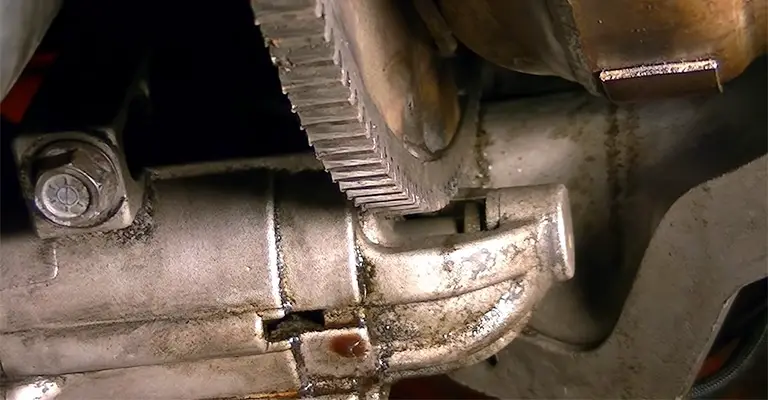
The gears in your starter can sometimes wear down due to too much friction. Or they simply may get displaced. If this happens, your starter engine will not connect to the engine properly and can even cause fatal damage to your car’s internals.
You can identify if this has happened by listening to grinding or clicking noises from your starter engine. Improper placement of the gears can create these noises and tell you that your starter engine needs to get fixed.
Dead Battery
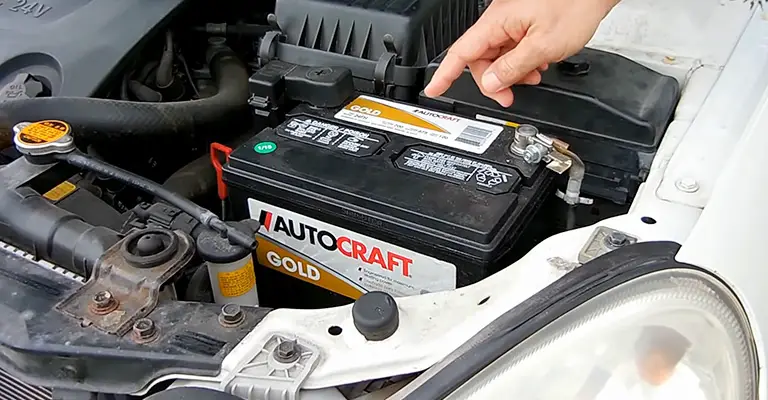
You can easily know if your car’s battery is dead by seeing if the headlights or the dashboard lights up. If they don’t, then the battery is probably dead or disconnected.
Sometimes the battery will have some juice remaining which will power the headlights and the dashboard, but it will be insufficient to start the starter engine. To see if that is the issue, try to kickstart the engine with a starter pack or jumper. If it works, then you need to charge your battery.
Extreme cold environments can sometimes also cause the battery to die down quickly. In such cases, do not panic. Know that it’s normal behavior because the low temperature can slow down the chemical reactions in the battery. Try to park your car in a moderately heated place during winter.
Smoke
The starter engine is mostly an electrical device. This device is connected to constantly moving engine parts, which are easily overheated and covered in grease. The hot oil can sometimes melt down the electrical components of the starter engine, which will result in it being faulty.
If you see smoke coming out of the hood of your car, then open it. Check to see if you can understand how much damage has happened. If the damage is negligible, then let the car cool down for a while. If it’s not, you may need to replace the entire starter engine, which can be quite expensive.
Starter engines can get overheated if the main engine connected to it is running for too long. The way to avoid this hassle is to ensure your car’s internals get enough cooling.
The starter Stays on Too Long
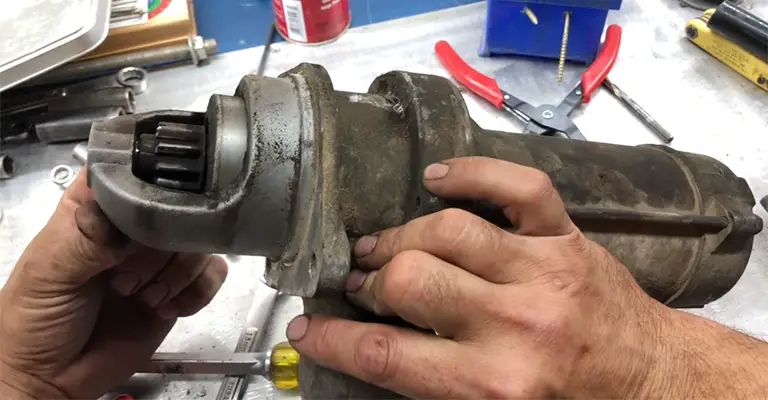
The electrical parts and wires of your starter can be fixed. If your starter stays on even after powering up the engine, then most likely, there needs to be better communication between your starter and the engine proper.
This will need some electrical debugging if this is the case. Though you can still drive your car after this, ignoring this sign can also lead to other components of the car being damaged.
Starter Soaked in Oil
Hot oil and electricity do not go hand in hand. The engine of your car needs oil for lubrication. And the engine is also connected to the starter device. Leaks can cause the oil to soak your starter, creating heat to melt down the wires and the circuits.
Sometimes there will be no smoke to warn you about this. If you are having issues with your starter, you might want to check the starter device by opening the hood if it looks too wet.
How Can You Take Care of Your Starter to Avoid the Problem?
The starter is one of the necessary components of your car. If you don’t want to be someone who gets lazy and regrets it later, you can take some preventive measures to avoid all of this hassle with your starter.
If you are driving long hours every day, take breaks in between if possible. Or make sure your internals get enough cooling and don’t get overheated.
Get quality grease and oil that does not heat up too easily. This will definitely help you in the long run.
Don’t let your battery freeze to death during winter, and replace or charge it when necessary.
Bottom Line
The starter of your car powers the main engine. It can get faulty because of a multitude of reasons. But if you know the main symptoms, then you can take immediate action before the matter drags out for too long.
Mainly smoke, overheating, and battery issues are the main culprit here. The symptoms that show from them can lead you to diagnose the issue and fix your starter quickly.
Leave a Reply